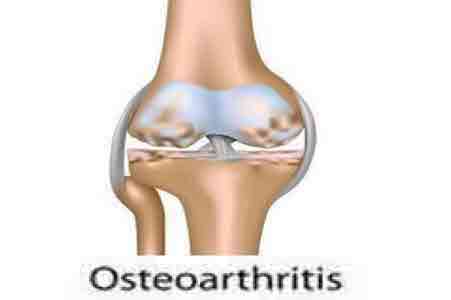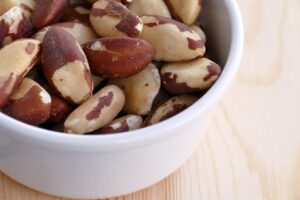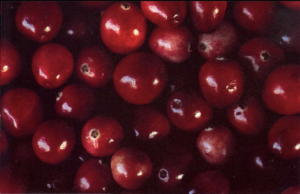Ginger has mentions in ancient writings from China, India, and the Middle East. Many healers give it praise for its aromatic and culinary qualities. However, ginger is probably best known for having a myriad of different medicinal properties. Of these, the first and foremost is ginger’s ability to relieve gastrointestinal problems such as nausea. Ginger is also thought to be beneficial for anti-inflammatory illnesses such as osteoarthritis. People believe the spicy taste of ginger that may promote cardiovascular health. Of course, it is essential to review the research to find the facts.
Three Studies On The Nutritional Benefits Of Ginger In Controlling Nausea
In a 2003 Australian study, Australian and New Zealand Journal of Obstetrics and Gynecology examined ginger extract’s effect on morning sickness. Of 120 women who were less than 20 weeks pregnant. The study included two types of women. First, those who had daily bouts with morning sickness for at least one week. Second, women for whom there was no relief from dietary modifications.

The women received either 125 mg of ginger extract or a placebo four times per day. After the first day, the women consuming ginger extract had significantly less nausea than those taking the placebo. While there were no significant differences in vomiting, the women on ginger experienced less retching. The researchers concluded that “Ginger can be a useful treatment for women suffering from morning sickness.”
A second study on the use of ginger for morning sickness in Australian women was published in 2004 in Obstetrics & Gynecology. For three weeks, 291 women, who were less than 16 weeks pregnant, were given either 1.05 g of ginger or 75 mg of vitamin B6 daily. In both groups, more than half of the women improved; there were no significant differences in outcomes. The researchers concluded that “for women looking for relief from their nausea, dry retching, and vomiting, ginger in early pregnancy will reduce their symptoms to an equivalent extent as vitamin B6.”
Ginger And Surgical Recovery
In a study conducted in Thailand and published in 2007 in Alternative Medicine Review, researchers attempted to determine if a bulk amount of ginger could reduce or prevent nausea and vomiting. Especially when following major gynecologic surgery. Researchers studied a total of 120 women undergoing major gynecologic surgery. Before surgery, 60 women received two capsules of ginger; another 60 received a placebo. The researchers indicated that the women who had pre-surgery ginger had statistically less nausea and vomiting. The researchers noted that “ginger effectively prevents nausea and vomiting after major gynecologic surgery.

Another study from Thailand, published in 2006 in the American Journal of Obstetrics & Gynecology, reviewed five randomized, double-blinded, placebo-controlled trials, including 363 patients. All the studies compare using a fixed dose of ginger to a placebo. This is on 24-hour-post operative nausea and vomiting in patients with gynecological or lower extremity surgery. The incidence of postoperative nausea and vomiting in those who received ginger was lower. At least one gram of ginger was more than a third less than those who received placebos. Still, the study has some limitations. For example, most patients were Asian, with an average weight of only 50 kg. Dosage requirements may need to be increased for more extensive people. Nevertheless, the researchers concluded that the “use of ginger is an effective means for reducing postoperative nausea and vomiting”.
Chemotherapy And Ginger
It is also well known that people receiving chemotherapy treatments frequently experience nausea. A study published in 2006 in Neurogastroenterology & Motility attempted to determine if high-protein meals combined with ginger could help control post-chemotherapy nausea. For three days after chemotherapy treatments, 28 cancer patients were placed in one of three groups. The control group ate their regular diets. The second group ate a protein drink and one gram of ginger root twice daily. A third group ate a protein drink, other protein powder, and one gram of ginger root twice daily. The researchers found that the “high protein meals with ginger reduced the delayed nausea of chemotherapy and reduced the use of antiemetic [anti-nausea] medications. Anti-nausea effects of high protein meals with ginger have an association with the enhancement of normal gastric myoelectrical [electricity generated by muscle] activity and decreased gastric dysrhythmias [abnormal stomach electrical activity].”
Diabetic And Cardiovascular Health

Researchers at Kuwait University studied the role that the nutritional benefits of ginger may play in treating rats that have diabetes. A 2006 British Journal of Nutrition study noted that rats developing diabetes have high blood sugar and weight loss. The researchers fed these rats raw ginger- 500 mg per kg of body weight per day- for seven weeks.
TA separate group of rats, which did not receive any ginger, served as the control group. The study showed the rats fed ginger had considerably lower blood sugar levels, cholesterol, and triglycerides. The nutritional benefits of ginger include alleviating the effects of diabetes. This includes protein in the urine, excessive urine output, and excess water intake. “Therefore, the conclusion from these studies is that raw ginger has significant potential in the treatment of diabetes.”
Osteoarthritis Of The Knee

In a study published in 2001 in Arthritis & Rheumatism, subjects with moderate to severe pain from osteoarthritis in their knees were divided into two groups. One group took 255 mg of concentrated ginger root twice daily for six weeks, while the other group had placebos. Following a washout period, the group that originally had ginger would receive placebos. The group that initially recieve placebos would later get ginger. In the end, 247 patients were evaluated…The researchers found that ginger markedly improved the pain from osteoarthritis. “A highly purified and standardized ginger extract had a statistically significant effect on reducing symptoms of OA [osteoarthritis] of the knee.” But, some of the participants reported gastrointestinal side effects such as belching, gas, nausea, and mild heartburn.
In an article published in 2005 in the Journal of Medicinal Food, researchers from the Department of Orthopedic Surgery at Johns Hopkins University School of Medicine noted that the anti-inflammatory properties of ginger had been known for centuries. It generally recognizes that “ginger modulates biochemical pathways activated in chronic inflammation”. But, an article published in 2007 in American Family Physician appears to disagree. The author commented on ginger’s nutritional benefits in alleviating arthritis. Brett White, MD, wrote, “We find mixed results in our studies of ginger for the treatment of arthritis symptoms.”
Should ginger be part of the diet? For the vast majority of people, yes.
Want more on Ginger? Click here.



